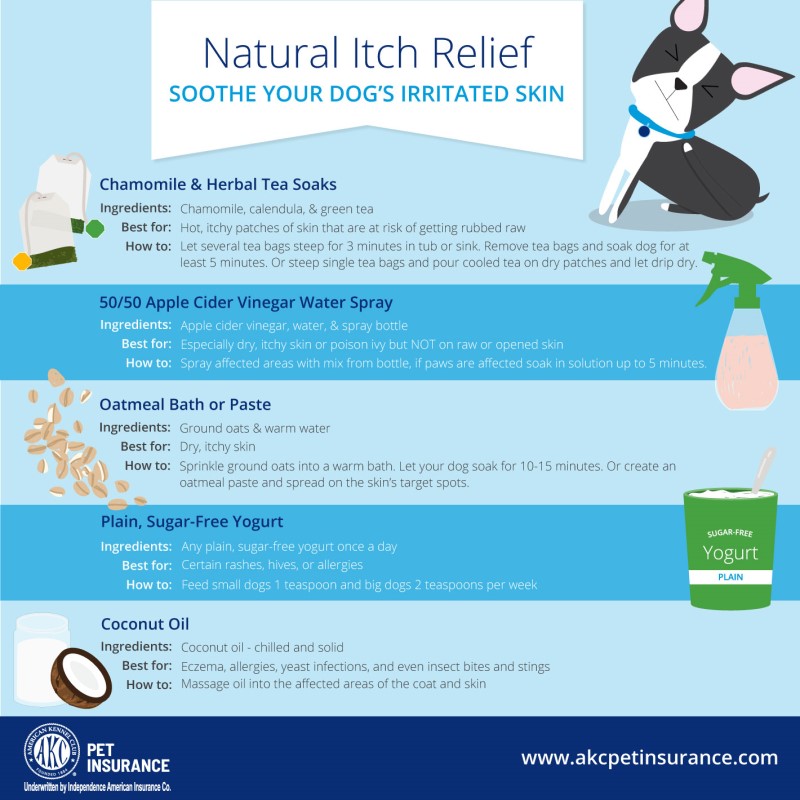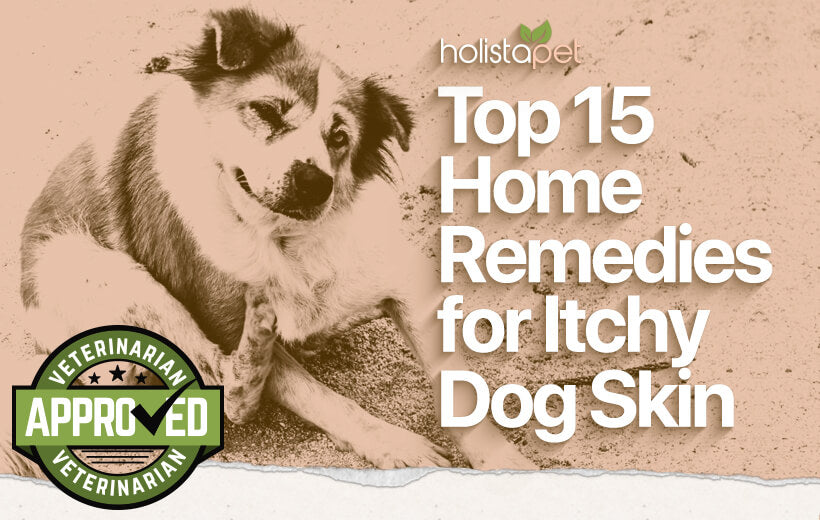For treatment of itchy dog skin, consult a vet for proper diagnosis and prescribed medications. Regular grooming and using hypoallergenic shampoos can also help alleviate itching in dogs.
Itchy skin can be a common issue faced by many dogs, leading to discomfort and irritation. Understanding the underlying cause of the itchiness is crucial in providing effective treatment for your furry companion. From allergies to skin infections, various factors can contribute to itchy skin in dogs.
With the right approach and proper care, you can ensure your dog’s skin stays healthy and itch-free. We will explore different treatment options and practical tips to manage and reduce itching in dogs effectively.

Credit: www.akcpetinsurance.com
Common Causes Of Itchy Dog Skin
Common Causes of Itchy Dog Skin:
- Allergies: Dogs can develop allergies to food, pollen, or other environmental factors, resulting in itchy skin.
- Parasites: Fleas, ticks, and mites can cause immense itching and discomfort for dogs.
- Skin Infections: Bacterial or fungal infections can lead to itchy and irritated skin in dogs.
Identifying The Symptoms
Identifying the symptoms of itchy dog skin is pivotal for effective treatment. Signs may include incessant scratching, redness, or flakiness. By recognizing these indications early on, proper care can be administered to alleviate your furry friend’s discomfort.
| Identifying the Symptoms |
| • Dogs may excessively scratch due to itchy skin. |
| • Look out for red or inflamed skin on your pet. |
| • Hot spots are areas where the skin is warm and irritated. |
Diagnosing The Underlying Issue
Veterinary Examination:
When your dog is suffering from itchy skin, it is crucial to determine the underlying cause, and a veterinary examination is the first step towards finding a solution. During the examination, a comprehensive physical examination will be conducted to assess the overall health of your dog. This may include checking for any visible signs of skin irritation, such as redness or inflammation.
Additionally, the veterinarian may perform specific tests, like skin scraping or allergy testing, to further investigate the cause of the itching. A skin scraping allows the vet to analyze a sample of your dog’s skin under a microscope, and this can help identify any parasites or bacterial infections. Allergy testing, on the other hand, can help determine if your dog is suffering from any environmental or food allergies that may be triggering the itchiness.
Once the underlying cause has been identified through veterinary examination and tests, appropriate treatment measures can be implemented to provide relief for your itchy dog’s skin.
:strip_icc()/home-remedies-for-itchy-dogs-4177184-04-bacc4a6360cd4c0abcd5807a2afc78d6.jpg)
Credit: www.thesprucepets.com
Exploring Natural Remedies
Do you often find your furry friend scratching and discomforted by itchy skin? Don’t worry, we have some natural remedies that can bring them relief! Oatmeal baths are a fantastic way to soothe your dog’s skin. Not only does oatmeal have anti-inflammatory properties, but it also helps to moisturize and calm irritated skin.
Coconut oil is another go-to remedy for itchy skin. Its antibacterial and antifungal qualities can provide instant relief by hydrating and healing the skin. Additionally, Aloe Vera has been used for centuries to treat various skin conditions in pets. Its cooling and soothing properties can reduce itching and redness.
By incorporating these natural remedies into your dog’s skincare routine, you can promote a healthier and happier furry friend. Remember to consult with your veterinarian before trying any new treatments!
Medical Treatments
For relieving itchy dog skin, there are various medical treatments available. Antihistamines can be prescribed to reduce itching caused by allergies. These medications block histamine receptors, providing relief from itching and inflammation. Steroids may also be prescribed to control severe itching, especially in cases of allergic reactions or skin conditions.
They help reduce inflammation and suppress the immune response that causes the itching. Topical medications such as shampoos, creams, and sprays can be used directly on the affected skin to soothe irritation and provide relief. These medications often contain ingredients like hydrocortisone or antihistamines to alleviate itching and restore the skin’s health.
Dietary Adjustments
To alleviate itchy dog skin, dietary adjustments can play a crucial role. Incorporating omega-3 fatty acids and antioxidants can help improve skin health, while eliminating potential allergens from the dog’s diet may provide relief from itching and irritation. Consultation with a veterinarian can aid in formulating a suitable dietary plan for your pet.
| Dietary Adjustments |
|---|
| Hypoallergenic Diet: Switching to a hypoallergenic diet can help eliminate potential allergens triggering itching. |
| Omega-3 Fatty Acids: Incorporating omega-3 fatty acids into your dog’s diet can reduce inflammation and itching. |
| Limited Ingredient Formulas: Opting for limited ingredient formulas can help in identifying specific allergens causing skin irritation. |
Environmental Changes
Environmental Changes: Treatment for Itchy Dog Skin can involve environmental changes to remove triggers. Regular grooming helps in controlling itchy skin. Using allergen-proof bedding can reduce skin irritation. These simple changes can make a big difference in managing your dog’s itchy skin.

Credit: www.holistapet.com
Preventive Measures
To address itchy skin in dogs, preventive measures include regular grooming, a balanced diet, and identifying and eliminating potential allergens. Using hypoallergenic shampoos and incorporating omega-3 fatty acids into their diet can also help alleviate itchy skin. Regular veterinarian check-ups are crucial for monitoring and treating any skin conditions.
| Preventive Measures | |
| Regular vet check-ups | Keep your dog healthy with routine visits. |
| Year-round parasite control | Protect your pet from fleas and ticks. |
| Skin and coat supplements | Improve your dog’s skin health and appearance. |
Frequently Asked Questions
What Is The Best Home Remedy For Dogs Itchy Skin?
One of the best home remedies for a dog’s itchy skin is an oatmeal bath. Mix ground oatmeal with water and apply it to your dog’s skin. The oatmeal has soothing properties that can help alleviate the itching. Make sure to rinse thoroughly afterward.
How Can I Stop My Dog From Itching Himself?
To stop your dog from itching himself, ensure a balanced diet, regular grooming, flea prevention, and use soothing shampoos. Consult a vet for skin issues.
Will Apple Cider Vinegar Help My Dog Stop Itching?
Yes, apple cider vinegar may help relieve your dog’s itching. Its anti-inflammatory properties can soothe irritated skin. However, it’s important to dilute it with water before using it on your dog, as undiluted vinegar can cause burns. Consulting your vet is recommended for proper dosage and application.
What Should I Wash My Dog With For Itchy Skin?
Wash your dog with a hypoallergenic shampoo to soothe itchy skin. Look for formulas with oatmeal or aloe vera.
Conclusion
After exploring various treatment options, finding the right solution for your itchy dog’s skin is crucial for their well-being. Whether it is through proper grooming, diet adjustments, or veterinary care, addressing the root cause is vital. Remember, a happy pup is one with healthy, itch-free skin.

Hello, I’m Daniel Johnson. I Studied animal science at the University of Florida. I am a seasoned veterinarian deeply committed to ensuring the health and happiness of every dog. With extensive expertise in dog health, I contribute my knowledge to Dog Advisor Pro to help dog owners understand and address their pet’s health concerns. My passion is making veterinary advice accessible and understandable to all, allowing dog owners to provide the best care for their furry friends.


